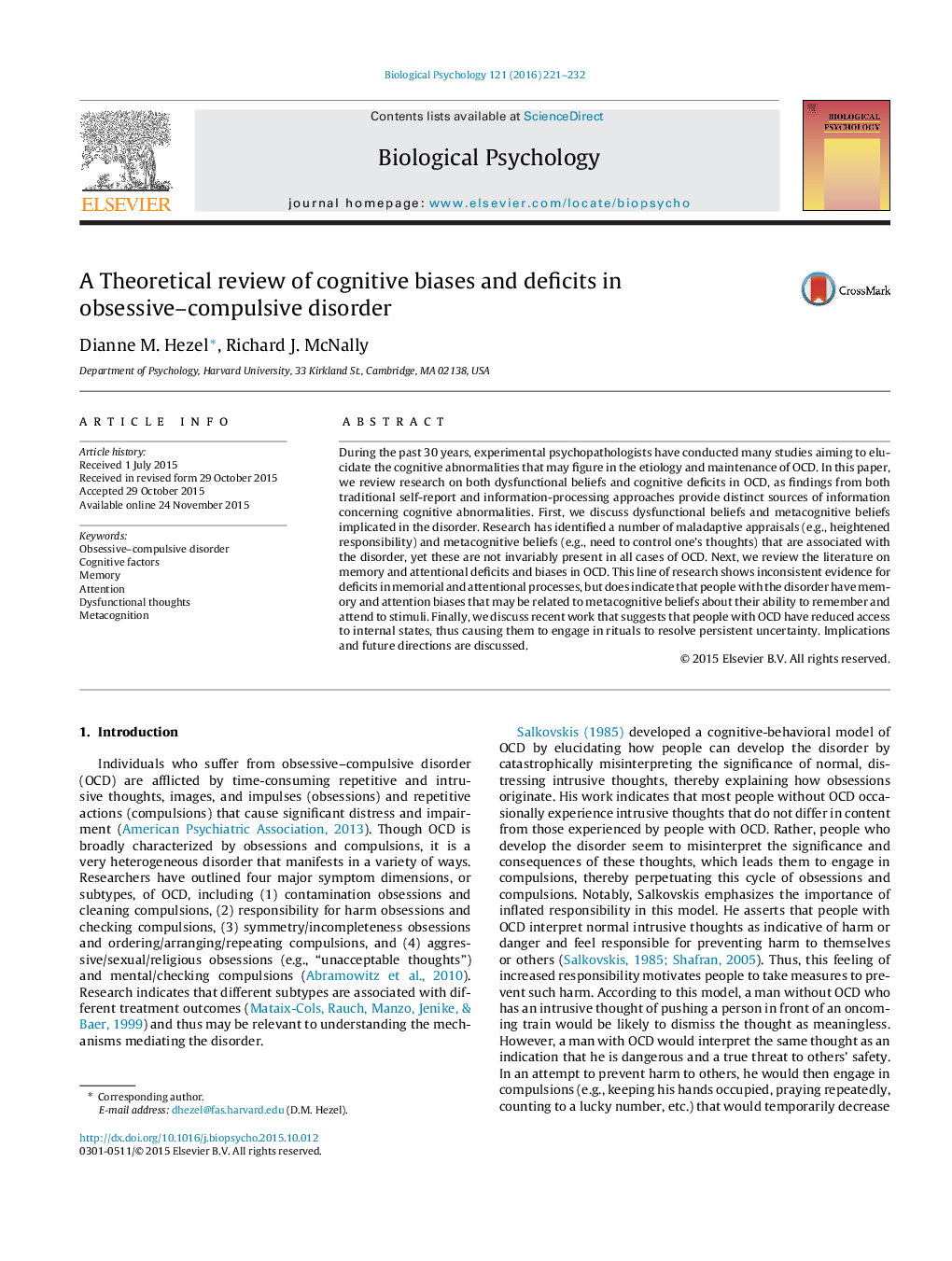| کد مقاله | کد نشریه | سال انتشار | مقاله انگلیسی | نسخه تمام متن |
|---|---|---|---|---|
| 5040568 | 1370422 | 2016 | 12 صفحه PDF | دانلود رایگان |
- Theoretical models of OCD highlight the importance of cognitive factors in the disorder.
- In this paper, we review research on cognitive factors in OCD.
- We discuss abnormalities in attention, memory, thinking, and accessing internal states.
- Implications and future directions are discussed.
During the past 30 years, experimental psychopathologists have conducted many studies aiming to elucidate the cognitive abnormalities that may figure in the etiology and maintenance of OCD. In this paper, we review research on both dysfunctional beliefs and cognitive deficits in OCD, as findings from both traditional self-report and information-processing approaches provide distinct sources of information concerning cognitive abnormalities. First, we discuss dysfunctional beliefs and metacognitive beliefs implicated in the disorder. Research has identified a number of maladaptive appraisals (e.g., heightened responsibility) and metacognitive beliefs (e.g., need to control one's thoughts) that are associated with the disorder, yet these are not invariably present in all cases of OCD. Next, we review the literature on memory and attentional deficits and biases in OCD. This line of research shows inconsistent evidence for deficits in memorial and attentional processes, but does indicate that people with the disorder have memory and attention biases that may be related to metacognitive beliefs about their ability to remember and attend to stimuli. Finally, we discuss recent work that suggests that people with OCD have reduced access to internal states, thus causing them to engage in rituals to resolve persistent uncertainty. Implications and future directions are discussed.
Journal: Biological Psychology - Volume 121, Part B, December 2016, Pages 221-232
